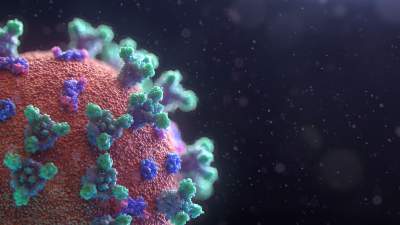With all the frenzy surrounding ICD-10 deadline, don’t forget, the annual updates to CPT® is just around the corner. Here’s a quick look at what could be headed your way in Cardiology for implementation in January 2016.
Note: The code changes mentioned below are not yet final; they reflect decisions noted in CPT® Editorial Summaries of Panel Actions.
- An End to Old IVUS Codes is Expected
According to the October CPT® Editorial Summary, you’ll be deleting the following intravascular ultrasound (IVUS) codes off your job aids:
- +37250, Intravascular ultrasound (non-coronary vessel) during diagnostic evaluation and/or therapeutic intervention; initial vessel (List separately in addition to code for primary procedure)
- +37251, … each additional vessel (List separately in addition to code for primary procedure)
- 75945, Intravascular ultrasound (non-coronary vessel), radiological supervision and interpretation; initial vessel
- +75946, … each additional non-coronary vessel (List separately in addition to code for primary procedure)
In their place, expect to see two 3725X codes to report bundled imaging services for diagnostic non-coronary IVUS.
- Transfer Transcatheter Pulmonary Valve Implantation from Cat. III to Cat. I
In 2016, expect to see CPT® delete Cat. III code 0262T (Implantation of catheter-delivered prosthetic pulmonary valve, endovascular approach) and replace it with a code in the range 3347X, which includes other pulmonary valve codes.
To support these changes, you will also see revisions to the parenthetical notes for cardiac catheterization codes 93462-93464.
- Code 0206T – Don’t Strike it Off Just Yet
The CPT® Panel granted an extension for Cat. III code 0206T (Computerized database analysis of multiple cycles of digitized cardiac electrical data from two or more ECG leads, including transmission to a remote center, application of multiple nonlinear mathematical transformations, with coronary artery obstruction severity assessment), pending clinical trial completion. The code is appropriate for Multifunction CardioGram (MCG), which uses a mathematical approach to diagnose heart disease.
- New Codes for Cerebral Revascularization to Affect Thrombectomy
There will be inclusion of three new 6164X codes for “percutaneous endovascular revascularization and infusion of cerebral vessels.”
To accommodate these changes, expect to see revisions to the following noncranial thrombectomy codes:
- 37184, Primary percutaneous transluminal mechanical thrombectomy, noncoronary, arterial or arterial bypass graft, including fluoroscopic guidance and intraprocedural pharmacological thrombolytic injection(s); initial vessel
- +37186, Secondary percutaneous transluminal thrombectomy (e.g., nonprimary mechanical, snare basket, suction technique), noncoronary, arterial or arterial bypass graft, including fluoroscopic guidance and intraprocedural pharmacological thrombolytic injections, provided in conjunction with another percutaneous intervention other than primary mechanical thrombectomy (List separately in addition to code for primary procedure)
- 37211, Transcatheter therapy, arterial infusion for thrombolysis other than coronary, any method, including radiological supervision and interpretation, initial treatment day.
- Focus on 15 Minutes for Moderate Sedation
According to the Summary CPT® Editorial Summaries of Panel Actions, there might be addition of four 991XX codes for moderate sedation of 15 minutes. To accommodate this change, you’ll see revisions to the existing guidelines and parenthetical notes.
Plus, you’ll also see the deletion of the current codes:
- 99143-+99145, Moderate sedation services (other than those services described by codes 00100-01999) provided by the same physician or other qualified health care professional performing the diagnostic or therapeutic service that the sedation supports …
- 99148-+99150, Moderate sedation services (other than those services described by codes 00100-01999), provided by a physician or other qualified health care professional other than the health care professional performing the diagnostic or therapeutic service that the sedation supports …
Codes 99143, 99144, 99148, and 99149 refer to an initial 30 minutes, while +99145 and +99150 are for each additional 15 minutes. Recall that the potential new codes refer to 15 minutes.
To help you keep abreast of 2016 CPT® code sets, ProfEdOnDemand would be providing audio conferences on the 2016 CPT® updates.





The above article is good regarding CPT® Codes 2016 could you help me were can i find the list of deleted, revised and new cpt codes for 2016 for diagnostic radiology.
Braddy